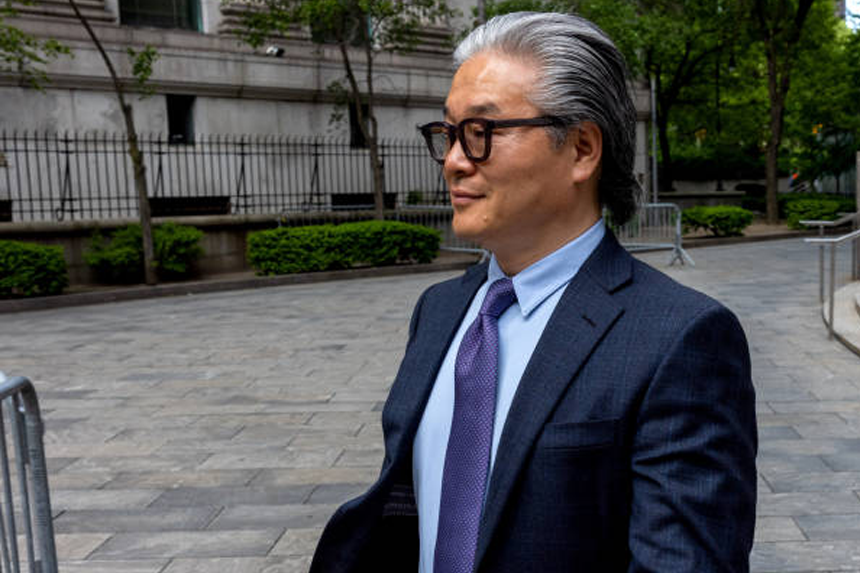Found guilty of fraud and market manipulation, former Wall Street investor and Archegos Capital Management founder Sung Kook “Bill” Hwang has been sentenced to eighteen years in jail. This belief results from his involvement in the spectacular 2021 fall-off of his hedge fund, which caused significant losses to several prominent financial institutions, including Credit Suisse, Nomura, and Morgan Stanley. It was among the worst hedge fund collapses since the economic crisis in 2008.
- How Did Hwang Manipulate the Market?
- What Were the Consequences for Major Banks?
- What Did Judge Hellerstein Say During the Sentencing?
- What Arguments Did Hwang's Lawyers Present for Leniency?
- What's Next for the Restitution Decision?
- When Will Hwang's Co-Defendant Be Sentenced?
- What Are the Long-Term Implications of This Case?
How Did Hwang Manipulate the Market?
The case centered on Hwang’s dishonest actions during Archegos’ collapse. Hwang hid his significant exposure from investors and big banks by quietly accumulating sizable, unidentified interests in a succession of stocks. By disguising the actual dangers and overstating the value of his assets, Hwang could control the market as these positions developed. Archegos’s inability to satisfy its debt to creditors resulted in a sell-off that generated losses of billions of dollars, leading to a quick fund collapse in a few days.
What Were the Consequences for Major Banks?
The Archegos fall caused several worldwide financial institutions to suffer significant losses and absorb them. Credit Suisse stands out as it was acquired by UBS after the Archegos incident. Other banks, like Morgan Stanley and Japan’s Nomura, also experienced significant financial losses from their fund participation. With billions destroyed following the fund’s downfall, the scope of the losses was unparalleled.
What Did Judge Hellerstein Say During the Sentencing?
U.S. District Judge Alvin Hellerstein voiced his disbelief at the scope of the losses resulting from Hwang’s actions throughout the sentencing. “The amount of losses caused by your conduct are larger than any other losses I have dealt with,” the judge said in his remarks. He also mentioned the public profile of the case, pointing out that it was “utterly ridiculous” to ask for forgiveness given the large quantities of money involved. Though it was less than the 21 years requested by prosecutors, the 18 years given down nonetheless constitute a long time for a white-collar offense.
What Arguments Did Hwang's Lawyers Present for Leniency?
His legal defense team advocated for a mild punishment for Hwang’s Christian religion and charitable activities. They pointed out that he had watched his wealth, once estimated at $30 billion, drop to a measly $55 million and had past given millions to charity. Notwithstanding these claims, Judge Hellerstein discounted them as useless, especially considering the enormous financial damage done. The judge likened Hwang to Sam Bankman-Fried, the infamous founder of bitcoin exchange FTX, who was imprisoned for 25 years for participation in a significant fraud operation last year.
What's Next for the Restitution Decision?
Apart from the jail term, prosecutors had sought a reparation payment from Hwang to offset the enormous financial losses resulting from his dishonest behavior. Judge Hellerstein has not yet decided on this request, though. Thursday is set aside for a resumption of the hearing, during which the court can decide on the restitution issue.
When Will Hwang's Co-Defendant Be Sentenced?
A co-defendant in the case and Archegos deputy Patrick Halligan was also found guilty of three felony counts of fraud. Halligan, who assisted Hwang in hiding the fund’s hazards, is slated for a January 27 punishment hearing.
What Are the Long-Term Implications of This Case?
Hwang’s sentence signals a significant turning point in a case that has attracted considerable attention to the dangers of market manipulation and the possibility of substantial fraud in hedge fund operations. Hwang’s case reminds financial institutions and investors of the risks of misleading market tactics and the results of not appropriately disclosing financial holdings. The effects of the Archegos fall-off still reverberate in the financial sector; big institutions still suffer.








